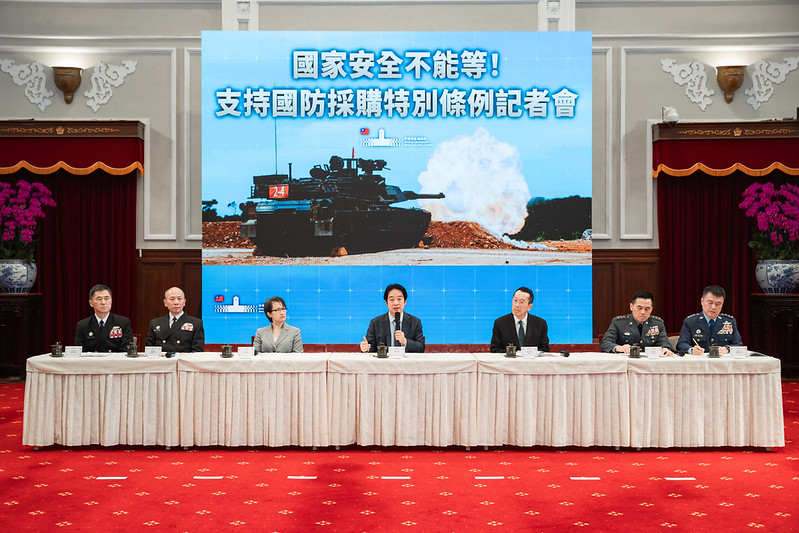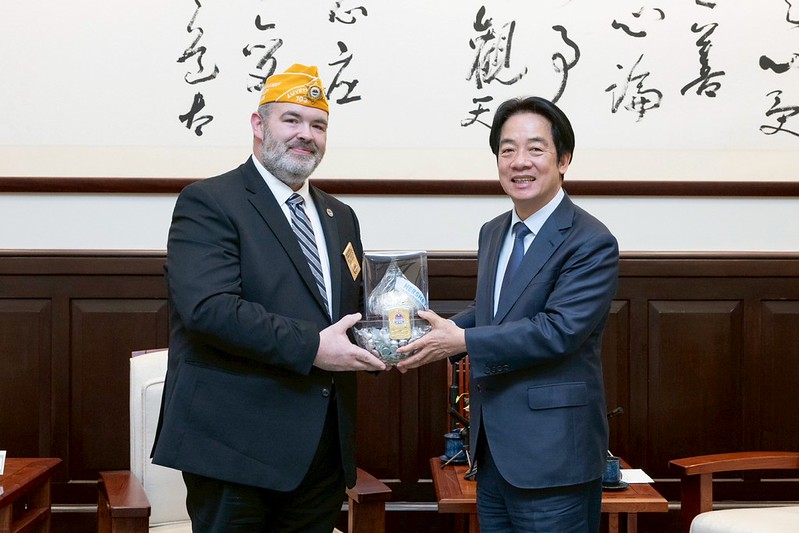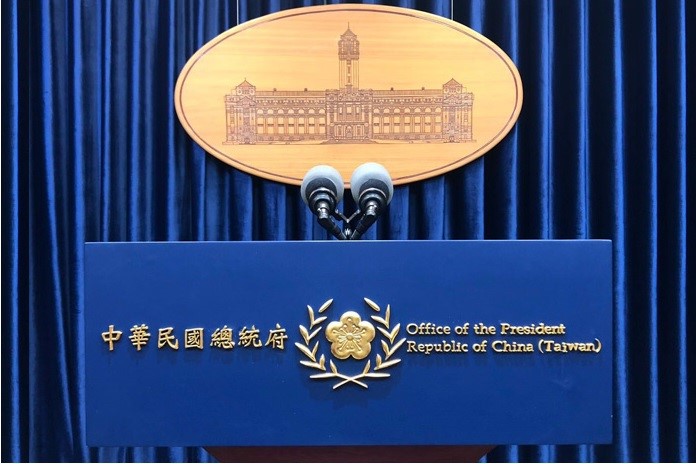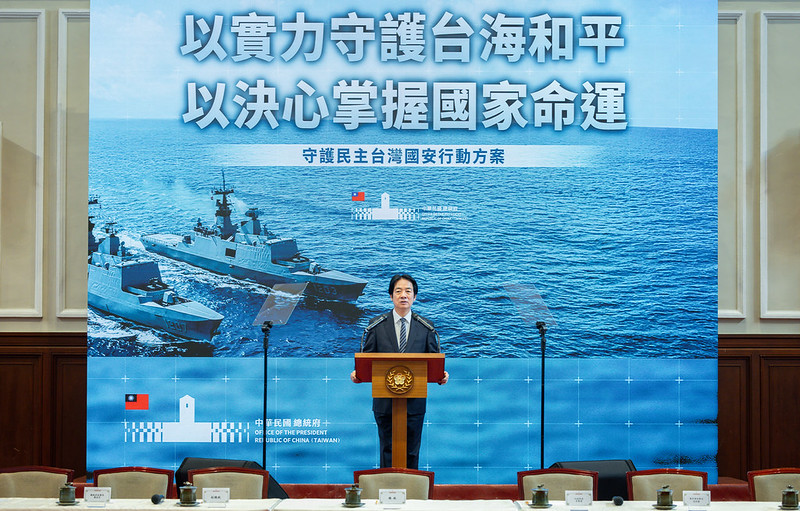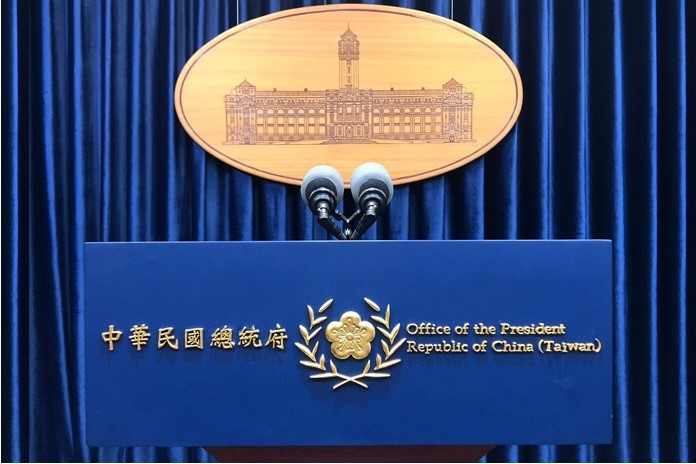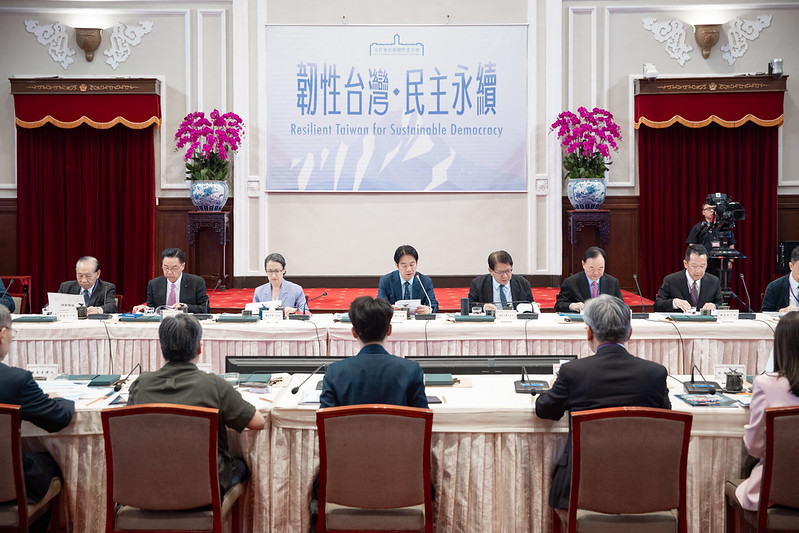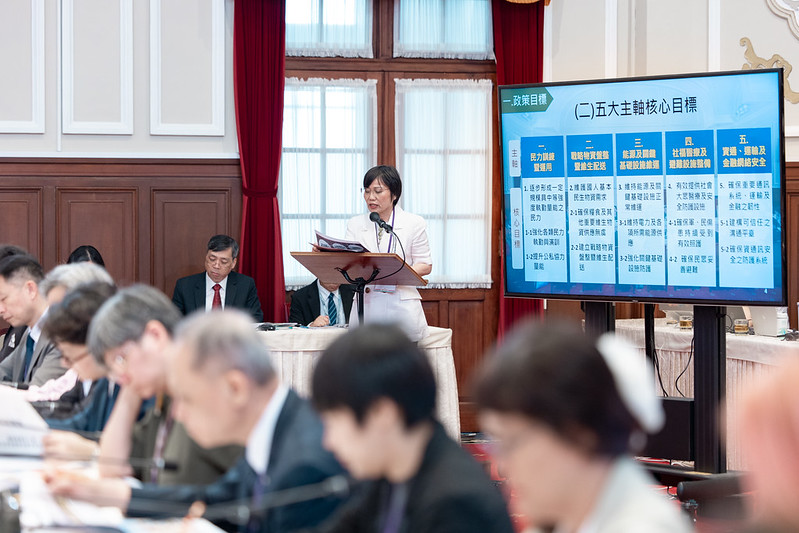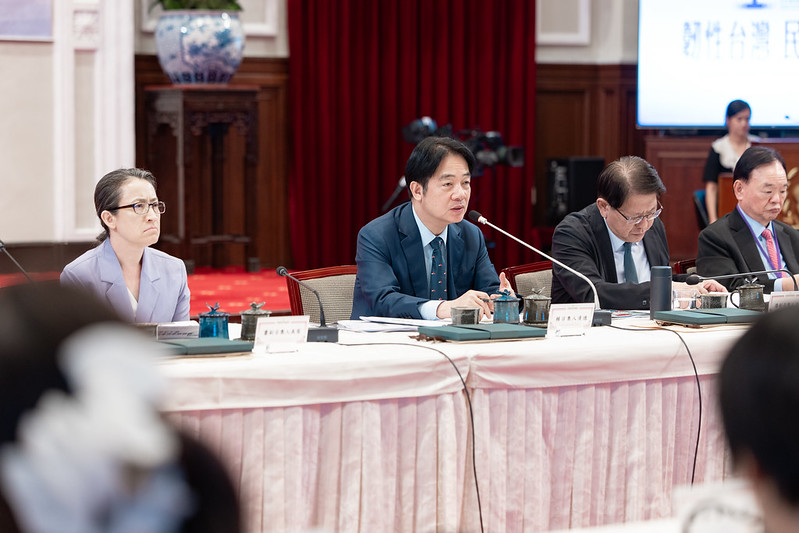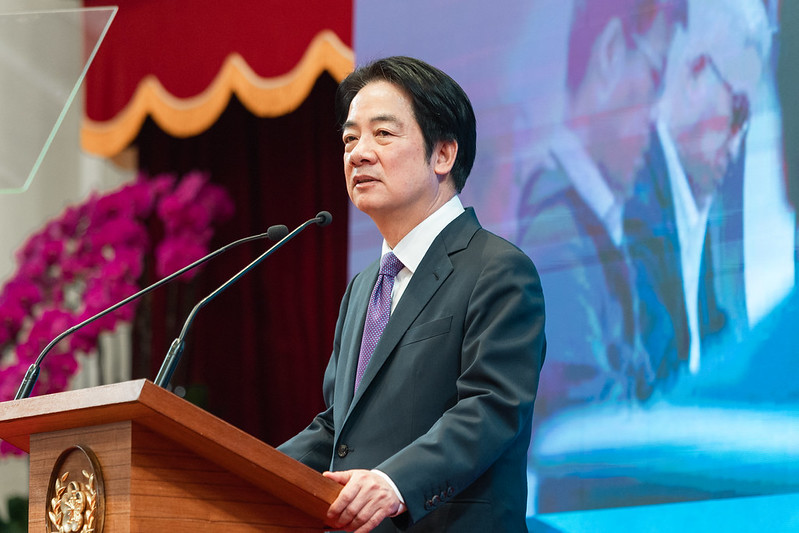News & activities
 News releases
News releases
On the afternoon of June 26, President Lai Ching-te presided over the fourth meeting of the Whole-of-Society Defense Resilience Committee. President Lai stated that the government will continue to prepare the resources and strengths of various agencies, reviewing and improving our processes over and again to promote development of whole-of-society defense resilience that is even more sound and solid. Noting that this July is our National Solidarity Month, the president indicated that by conducting verification in the Han Kuang and Urban Resilience exercises, we will demonstrate to the international community that Taiwan’s people have a strong will to defend and determination to protect ourselves.
President Lai emphasized that defending Taiwan has never been solely the military’s responsibility; it is a reflection of the will of our entire population. He said that this shows that no matter where we are, every role and every ounce of strength makes an indispensable link in our national security network. He underlined that only when the entire population feels involved and everyone participates can whole-of-society defense reach maximum strength, so that amidst various challenges, Taiwan can remain stable and become even more united.
A translation of President Lai’s opening statement follows:
Since last year when I announced the establishment of three committees at the Presidential Office, today will be the fourth meeting of the Office of the President Whole-of-Society Defense Resilience Committee. I want to thank all the advisors and committee members for their many valuable suggestions during this period.
We also conducted tabletop exercises last December and field exercises this March to review the coordination, integration, and response capabilities between the central and local governments and between the government and civil society organizations, as well as to verify Taiwan’s response and mobilization capabilities in addressing natural disasters and various extreme situations. Going forward, we will continue to prepare the resources and strengths of various agencies, reviewing and improving our processes over and again to promote development of whole-of-society defense resilience that is even more sound and solid.
Recently, the Executive Yuan proposed a special act to enhance national security resilience, allocating a special budget of NT$410 billion drawn from the annual budget surplus, of which NT$150 billion will be used to enhance national resilience and strengthen territorial defense capabilities. Examples include: strengthening coastal patrol facilities and equipment, adding unmanned vehicles, enhancing the resilience and equipment performance of military-civilian communications operations, building joint military-civilian image surveillance and reconnaissance capabilities, and improving important protective facilities.
Regarding field verification, July is almost here, and the annual Han Kuang exercises are about to begin. During this year’s 41st Han Kuang exercises, the 2025 Urban Resilience Exercises will also be conducted. The Han Kuang exercises emphasize military training exercises, while the Urban Resilience Exercises emphasize the integration of non-military sectors in responding to emergencies. Through military-civilian cooperation, the exercises demonstrate the nation’s will to come together in solidarity and enhance Taiwan’s whole-of-society defense resilience.
This July is our National Solidarity Month. Through practical exercises, we want to make Taiwan society more aware that preparation enhances security. We also want to demonstrate to the international community that Taiwan’s people have a strong will to defend and determination to protect ourselves.
In recent years, founded on realistic combat training and a strategy of resolute defense and multi-domain deterrence, the military has developed asymmetric warfare capabilities, and constructed a multi-domain denial and resilient defense approach to preparedness.
In the 41st Han Kuang exercises that will run this year from July 9 to 18, for 10 days and nine nights, military units will fulfill realistic combat training requirements. Key items for verification include: responding to gray-zone intrusions; rapid response reserve deployment; strategic communication operations mechanisms; mobilization to reconstitute troop combat capabilities; multi-domain, deep defensive deployment; combat effectiveness of new equipment; enhancement of logistics support capabilities; and military-civilian integration and coordination operations.
Beginning on April 10 this year, we held 2025 Urban Resilience Exercises in eight counties and cities: Lienchiang County, Hualien County, Keelung City, Hsinchu City, Taitung County, Penghu County, Kinmen County, and Chiayi City.
From July 15 to 17, further exercises will be held in three cities – Taichung City, Tainan City, and Taipei City, focusing on key infrastructure with distribution, first aid, and relief stations set up in the surrounding administrative areas. At the same time, the nation’s 22 counties and cities will also simultaneously conduct air raid shelter and civil defense drills for the first time to verify the coordinated response capabilities of the central and local governments when faced with extreme situations.
We will use advance notifications, systematic drills, and cross-department field exercises to ensure that the public clearly understands how to connect their respective roles and generate maximum strength to collectively respond when crises or challenges arise.
I want to emphasize that defending Taiwan has never been solely the military’s responsibility; it is a reflection of the will of our entire population. In addition to a military with strong combat capabilities, we also need police officers to maintain order and firefighters and medical personnel to save lives. We also need government workers, corporate partners, and community volunteers to stick to their posts, along with the united efforts of all citizens.
I want to take this opportunity to thank Advisor Lin Ming-hsiung (林敏雄), who is here today, as PX Mart will also participate in the Urban Resilience Exercises in July. This shows that no matter where we work, every role and every ounce of strength makes an indispensable link in our national security network.
Therefore, by conducting verification in the Han Kuang and Urban Resilience exercises, National Solidarity Month will demonstrate the spirit and resilience of Taiwanese society in maintaining a sense of composure and cooperation during crises.
Many of our fellow citizens have recently been discussing disaster prevention and evacuation go bags and checking supply lists. Many have also registered for courses to learn emergency first aid skills and gain civil defense knowledge. In addition, many people are looking at map apps with their families to locate evacuation sites near their homes and become familiar with evacuation routes.
Prevent problems before they arise; preparation enhances security. These maxims, from mental preparation to concrete planning, are the best ways of preparing to respond to natural disasters or various extreme situations. Only when the entire population feels involved and everyone participates can whole-of-society defense reach maximum strength, so that amidst various challenges, Taiwan can remain stable and become even more united.
To help everyone better understand the essence of National Solidarity Month, today’s agenda will include five reports. In addition to the progress of items listed in the third committee meeting, the Ministry of the Interior, Ministry of National Defense, and the Executive Yuan will, respectively, deliver reports regarding the execution and goal achievement of the five key areas of whole-of-society defense resilience; planning for the 41st Han Kuang exercises; the preparations and promotional status of the 2025 Urban Resilience Exercises; and observations regarding the 2025 resilience exercises. On the table in front of all advisors and committee members is a “Han Kuang 41” arm patch specially prepared for everyone by the Presidential Office.
Once again, thank you to all the advisors and committee members for your participation. I look forward to your providing professional opinions from various perspectives, engaging in wide-ranging discussions, and working together to enhance Taiwan’s whole-of-society defense resilience. Thank you.
Following his statement, President Lai heard the report on the progress of items listed in the third committee meeting and reports regarding the execution and goal achievement of the five key areas of whole-of-society defense resilience; planning for the 41st Han Kuang exercises; the preparations and promotional status of the 2025 Urban Resilience Exercises; and observations regarding the 2025 resilience exercises. Afterward, President Lai exchanged views with the committee members regarding the content of the reports.
